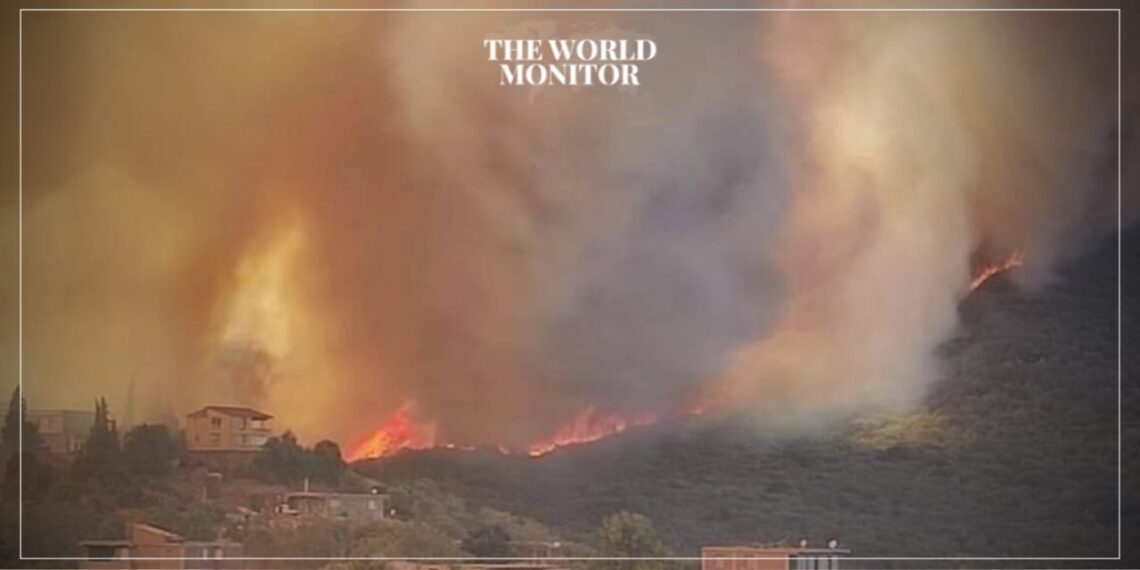Emergency response teams are currently engaged in efforts to combat a series of wildfires that have erupted in Algeria’s northeastern provinces of Bejaia and Tizi-Ouzou. These wildfires have intensified and now pose a significant threat to nearby communities.
This region faced severe devastation just last July when massive forest fires claimed the lives of approximately thirty individuals. Presently, there have been no reported casualties or property damage resulting from these fires. Nevertheless, responders are cautioning that the fires are spreading rapidly due to strong winds.
Authorities are also alerting the public to the likelihood of continued high temperatures in the affected areas throughout the weekend. The combination of hot and dry conditions is exacerbating the growth of these wildfires.
This summer, Northern Algeria witnessed an unprecedented heatwave, with temperatures soaring to as high as 48 degrees Celsius (118.4 degrees Fahrenheit).
The World Meteorological Organization emphasizes that the ongoing occurrence of extreme weather events worldwide underscores the urgent need for more comprehensive climate action.
The recurrence of wildfires in Algeria’s Bejaia and Tizi-Ouzou provinces serves as a stark reminder of the growing global issue of wildfires driven by extreme weather conditions, which are often linked to climate change. In recent years, many regions around the world have experienced an increase in the frequency and intensity of wildfires, posing significant threats to both human communities and ecosystems.
Algeria’s experience with these wildfires highlights the importance of not only responding effectively to such disasters but also adopting proactive measures to mitigate their impact. Efforts such as creating firebreaks, implementing controlled burns, and investing in early warning systems can help reduce the risk and severity of wildfires.






